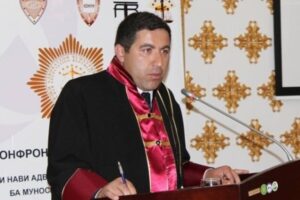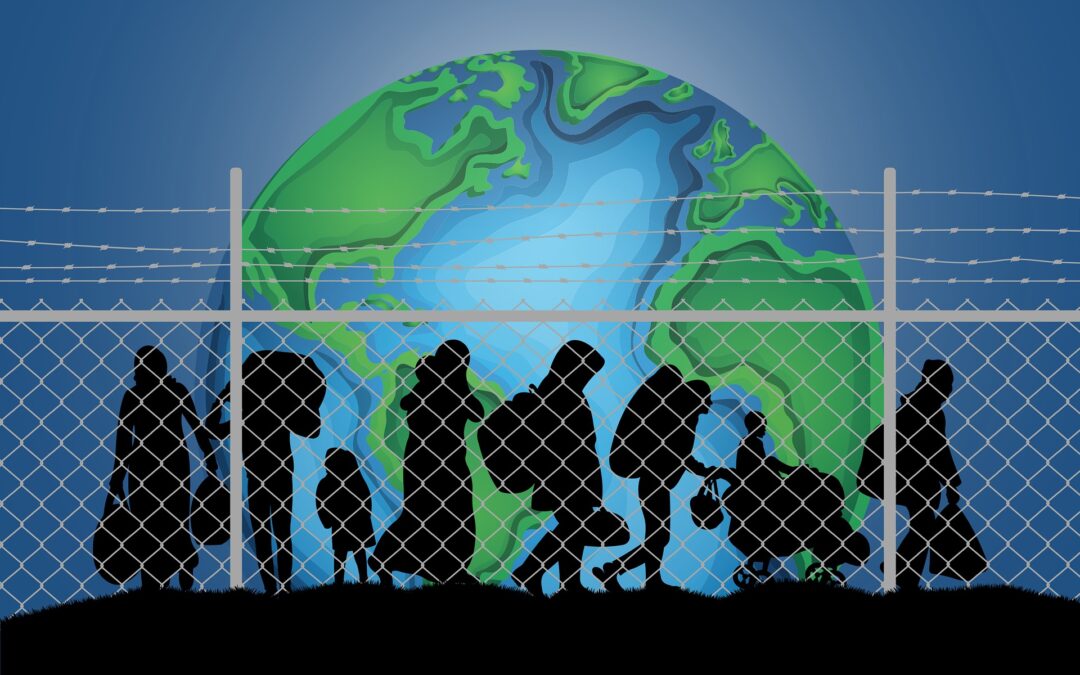
Dec 20, 2023 | Advocacy, News
Today, the ICJ condemned aspects of the agreement reached by the EU Member States and the European Parliament on the last five instruments from the EU Pact on Migration and Asylum, stressing that it will effectively strip away core human rights and refugee protections for persons from vulnerable populations.
The ICJ calls on the EU and its Member States to adhere strictly to their international legal obligations, particularly under human rights law and refugee law, in implementing any new legislative measures.
The Pact, a major set of legislative proposals on the EU’s migration policy initially proposed by the European Commission in September 2020, aims to update the existing rules of the Common European Asylum System (CEAS), which was renegotiated just a few years prior to this proposal.
« The agreement reached today between the co-legislators, the Council of the EU and the European Parliament sends a worrying signal on the state of EU’s commitment to human rights protection, » said Karolína Babická, Senior Legal Adviser of the ICJ Europe and Central Asia Programme. « Although a final text of the legislative instruments is yet to be seen, the agreement waters down protection and safeguards for the rights of migrants and refugees, that oblige the EU Member States under international law. »
Based on the agreement reached today on the Asylum Procedures Regulation, applicants will not have access to free legal assistance, including in border procedures, as it will only be available for certain persons at the appeals stage, where for many it will be too late. Other points agreed include more fast-track procedures with fewer individual safeguards for the migrants and refugees in question. The Council and the European Parliament also agreed with the proposal of a fiction of “non-entry” to the territory, which is intended have the effect of removing migrants and refugees from the protective of spheres of the state on the grounds that they are not really in the country.
« These are in breach of international human rights standards and rules on jurisdiction and will lead to more administrative detention, which effectively punishes those in most need of protection, » said Babická, « It appears that the instruments are intended to allow for border procedures with nearly no procedural safeguards, resulting in quick deportations. However, even in border zones or transit zones, the State’s human rights law obligations remain fully applicable. »
The asylum border procedure as agreed would apply to asylum seekers who are either “unlikely to be granted asylum”, whose claim is fraudulent or abusive, or who are considered a security risk. This provision undermines the key principle of refugee protection, ensuring an individual assessment of one’s asylum claim. Regardless of the general recognition rate, many individuals are still refugees in need of protection status due to circumstances of their individual case. Equally in assessing whether the application is fraudulent, abusive or potentially a security risk, an individualised assessment must be in place.
Indeed, it is difficult to assess any of the purported criteria without fair hearing based on equal protection and the rule of law.
A further problematic aspect includes the disparate treatment and safeguards for available for children below the age of twelve and those twelve and older. Under the Convention on the Rights of the Child, a child is considered a person under the age of 18 must be afforded the protections due to them. Under these rules, older children would for instance not be exempted from border procedures.
The ICJ has previously warned about harmful provisions in the proposals regarding detention in the Screening and Asylum Procedures Regulation.
The Regulation on Asylum and Migration Management, replacing the current Dublin Regulation, will now exclude the possibility for applicants to be transferred to the Member State where they have a sibling or other family member with a legal residence. This provision seriously worsens the situation of asylum applicants in the EU CEAS so far, in breach of international legal standards, especially the right to family life.
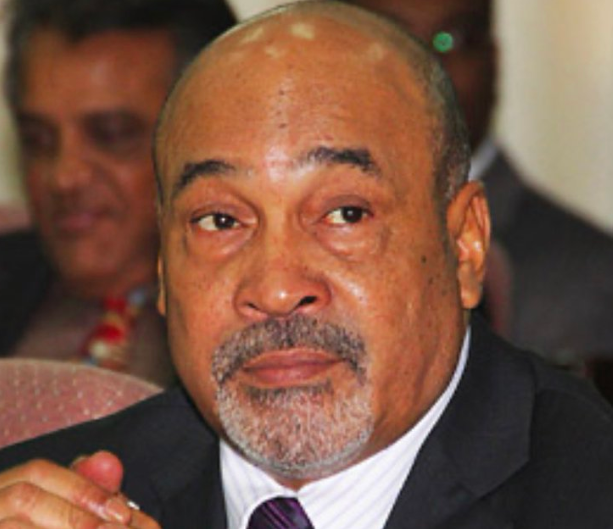
Dec 20, 2023 | Cases, News
Desi Bouterse sentenced to 20 years in prison
Paramaribo, Suriname; 20 December 2023 – The International Commission of Jurists (ICJ) welcomed the 20 December decision by the Hof van Justitie, the highest court in Suriname, confirming the conviction of former president Desi Bouterse for the 1982 murders of 15 political prisoners.
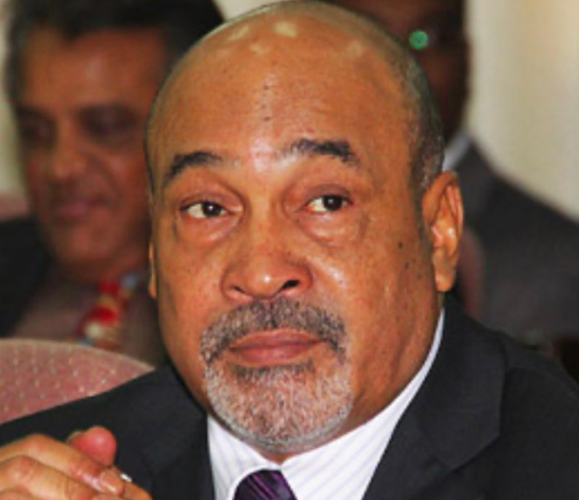
The three-judge chamber also confirmed Bouterse’s sentence of 20 years in prison. It was not immediately clear when Bouterse, who was not in court, would begin serving his term. The court also sentenced his four co-accused to 15 years each.
It took 41 years, but the long arm of the law has finally caught up to Desi Bouterse,” said Reed Brody, an American lawyer who attended the verdict for the ICJ. “Suriname has chosen the rule of law. The judges who rendered today’s decision and those who issued the original conviction while Bouterse was still president should be praised for their fortitude and their independence.”
Bouterse’s lawyer had indicated that in the event of a conviction, he would file a challenge with the Inter-American Commission on Human Rights, though it is not clear on what ground, and such a filing does not stay the operation of the sentence. The only domestic channel available for Bouterse is to seek a pardon from president Chan Santokhi.
The ICJ underscored that extrajudicial executions are crimes under international law, that Heads of State enjoy no special immunity from prosecution for such crimes irrespective of when they were committed, and that pardons may not be applied to shield those responsible from criminal accountability.
Today’s decision is a victory for the families of Bouterse’s victims, who never gave up, and for all those around the world seeking to bring powerful abusers to justice,” said Brody. “It should serve as another reminder that accountability for the most serious crimes has no expiration date.”
Background
On 8 December 1982, 15 leading opponents of Suriname’s then military regime led by Desi Bouterse, who had been taken from their homes and arbitrarily detained the night before, were executed at the military barracks of Fort Zeelandia in the capital Paramaribo, after apparently being subjected to torture. The victims included the country’s chief labor leader, four lawyers, two reporters, a radio commentator, the owner of a news service, an industrialist, a former congressman, and a professor of biophysics.
No investigation of the killings was undertaken, even following the restoration of democracy in 1987. On the eve of the expiration of the 18-year statute of limitations for murder in 2000, the families of the victims obtained a court order mandating an investigation. In November 2007 the Krijgsraad (a military court comprised in the case of Bouterse of civilian judges) was established to hear charges against Bouterse and 24 other suspects. The process was plagued with prolonged suspensions and delays, especially following the election of Bouterse as president of Suriname in July 2010. First, the trial was suspended for four years following an amendment passed by Bouterse’s party to the Amnesty Law of 1989 (now repealed) granting him and the other accused immunity from prosecution. Then Bouterse ordered the attorney general (procureur-generaal) to block resumption of the trial on “national security” grounds, but the courts refused the request. He also sought unsuccessfully to fire the attorney general,an independent judicial officer with lifetime tenure, for failing to stop the prosecution. Finally, on 29 November 2019, while Bouterse was still president, the Krijgsraad sentenced him to 20 years in prison for planning and ordering the “December murders”. Because Bouterse chose not to be present at that trial, he was able to obtain a review of the conviction. On 30 August 2021, the Krijgsraad affirmed the conviction. Eyewitness and video evidence adduced at the trials placed Bouterse at Fort Zeelandia where he personally confronted victims before they were shot.
Bouterse, who lost power in 2020, appealed to the Hof van Justitie.
The ICJ has been monitoring the Bouterse trial since 2012. Details of some earlier ICJ’s missions reports and statements can be found here.
Contact:
In Paramaribo, Reed Brody (English, Spanish, French, Portuguese): +1-917-388-6745 or reedbrody@gmail.com. Twitter: @reedbrody
Watch his post-verdict interview with ITV here: https://www.youtube.com/watch?v=1A3DBVVsAmY&t=132s
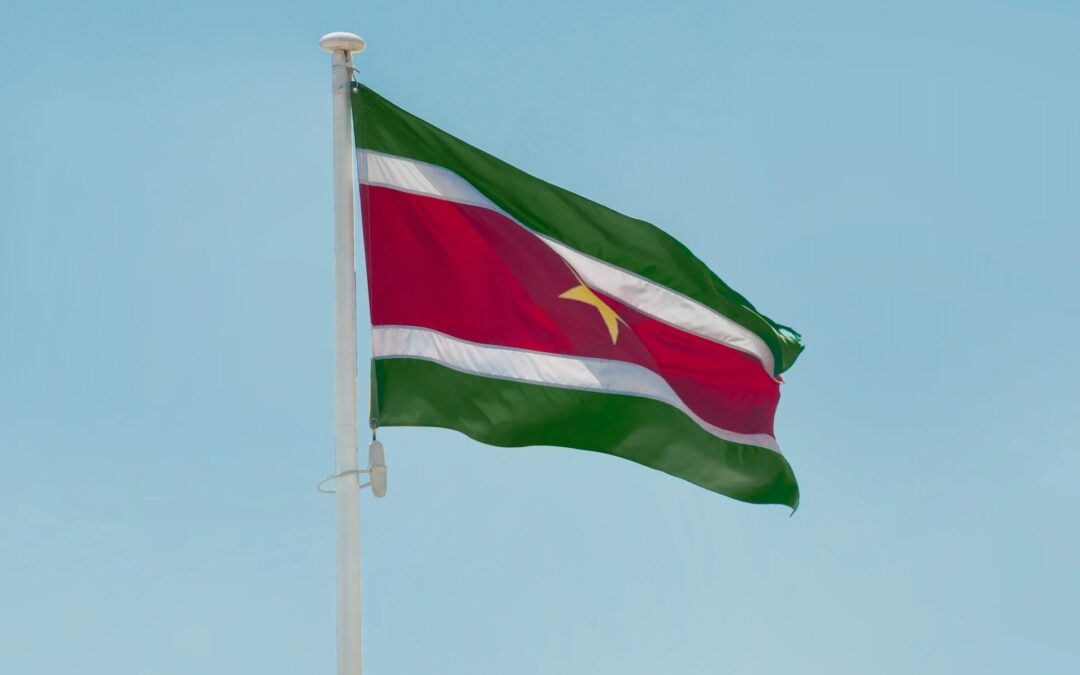
Dec 17, 2023 | Cases, News
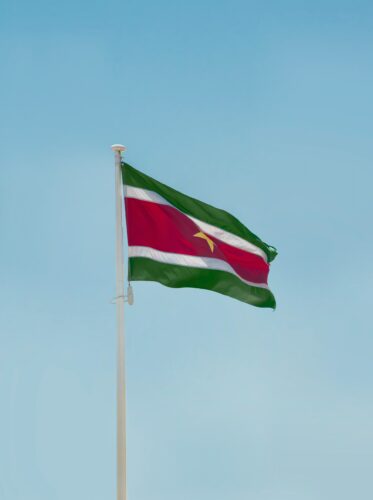
ICJ will monitor Desi Bouterse appeal
Paramaribo, Suriname; 17 December 2023 – On 20 December 2023, the Hof van Justitie, the highest court in Suriname, is expected to issue its final decision in the appeal by former president Desi Bouterse against his conviction for the 1982 murders of 15 political prisoners.
The International Commission of Jurists, which has monitored the trial since 2012, will be present in court in Paramaribo.
“This is the most important criminal trial in Suriname’s history,” said Reed Brody who will attend the verdict for the ICJ. “That a final decision will be delivered, after so many delays and detours, is a tribute to the courage and independence of Surinamese judges, the perseverance of the victims’ families and the resilience of the rule of law.”
Background
On 8 December 1982, 15 opponents of Suriname’s then military regime led by Desi Bouterse, including lawyers, union leaders and journalists, who had been arbitrarily detained the day before, were executed at the military barracks of Fort Zeelandia, Paramaribo, Suriname, after apparently being subjected to torture. Following a complaint by the families of the victims in 2000, in November 2007 the Krijgsraad (a military court comprised in the case of Bouterse of civilian judges) was established to hear charges against Bouterse and 24 other suspects. The process was plagued with serious suspensions and delays, especially following the election of Bouterse as president of Suriname in July 2010 and an amendment of the Amnesty Law of 1989 (now repealed) granting him and the other accused immunity from prosecution. On 29 November 2019, following a decade-long court martial, the Krijgsraad sentenced Bouterse- while he was still president – to 20 years in prison for planning and ordering the “December murders”. On 30 August 2021, the Krijgsraad affirmed the conviction and Bouterse- who lost power in 2020 – appealed. A final decision of the Hof van Justitie is due on 20 December in the cases of Bouterse and four others who have appealed their convictions.
ICJ Monitors
The ICJ trial monitors have been: from 2012 until 2020 – Jeff Handmaker, a former UK barrister and associate professor at Erasmus University in The Netherlands and the University of the Witwatersrand in South Africa; from 2020 – Godfrey Smith SC, former Attorney General of Belize, former acting Justice of Appeal of the Eastern Caribbean Supreme Court; and from 2023 – ICJ Commission member and veteran war crimes prosecutor Reed Brody who has participated in cases involving Augusto Pinochet, Hissène Habré and Jean-Claude Duvalier among others.
Reed Brody will be present in court on 20 December.
Details of some earlier ICJ’s missions reports and statements can be found here.
Contact:
In Paramaribo, Reed Brody (English, Spanish, French, Portuguese): +1-917-388-6745 or reedbrody@gmail.com. Twitter: @reedbrody
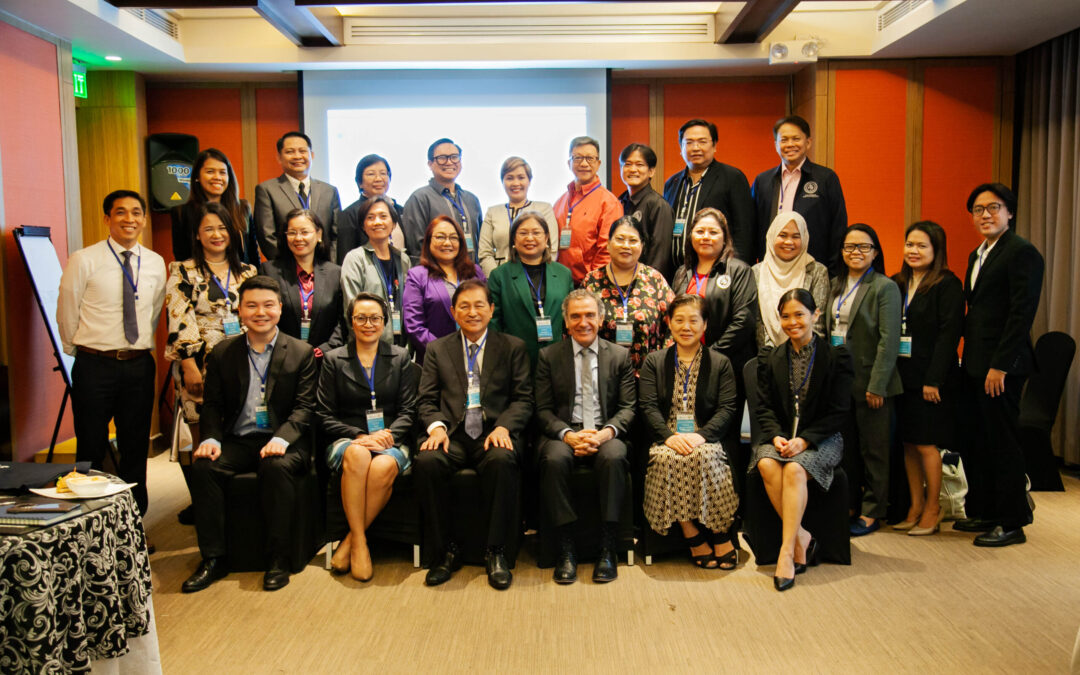
Dec 7, 2023 | Events, News
On 5 – 6 December 2023, the International Commission of Jurists (ICJ) co-organized a workshop, with the Department of Justice (DOJ) of the Philippines, on ensuring the protection of human rights in the online sphere under international human rights law.
The workshop was aimed at enhancing the capabilities of public prosecutors to integrate into their work the relevant international human rights law and standards pertaining to human rights in the online space.
“More than forty percent of our time each day is now spent connected to the internet. This has changed our lives. New technologies have also engendered new challenges for the fulfilment of human rights,” stressed Santiago Canton, ICJ Secretary General, during his opening remarks. “International human rights law provides the framework for us to better understand and respond to these new developments.”
Expert international and Filipino participants reaffirmed the pivotal role that public prosecutors play in protecting and promoting human rights in the digital sphere.
“This workshop was scheduled to coincide with the National Human Rights Consciousness Week in the Philippines, and the inauguration of the DOJ’s Human Rights Office, as part of our efforts to integrate human rights-based approaches into our prosecutorial work,” said Prosecutor Hazel C. Decena-Valdez, OIC Senior Deputy State Prosecutor, Department of Justice, noting the particular timeliness of the workshop in her opening remarks.
Participants raised concerns about human rights violations and abuses perpetrated in digital spaces, including the particular risks experienced by individuals from certain groups, such as children and women.
“The risks of violations or abuses of children’s rights in the digital environment include exposure to unlawful or harmful contents, and online bullying, threats, attacks, punishment, censorship and digital surveillance,” highlighted ICJ Commissioner Mikiko Otani, Former Chair of the UN Committee on the Rights of the Child. “The role of prosecutors in securing the rights of the child in digital environments is very important, by holding perpetrators of violations accountable, and protecting child victims from secondary victimization.”
The participants discussed the numerous challenges they face when prosecuting cases impacting human rights in the digital space, and mapped out how to better integrate international human rights law and standards into their investigatory and prosecutorial work in order to ensure access to justice and effective remedies.
Some of these challenges include how to: handle criminal cases based on domestic laws that conflict with international human rights law; ensure that there is accountability for violations and abuses of human rights online; and prevent biases and stereotyping, such as those based on gender, when investigating and prosecuting cases.
“Prosecutors should ensure that they develop protocols to help eradicate structural gender bias, and ensure gender-responsive approaches to their work. This includes preventing revictimization and ensuring confidentiality when handling cases,” underscored Melissa Upreti, ICJ Regional Director for Asia and the Pacific. “Online violence should not be distinguished as a lesser crime, and the human rights implications of online gender-based violence must be fully recognized.”
Contact
Melissa Upreti, ICJ Regional Director, Asia and the Pacific, e: melissa.upreti@icj.org
Daron Tan, ICJ Associate International Legal Adviser, e: daron.tan@icj.org
Caleen Obias, ICJ National Legal Consultant, e: caleen.obias@icj.org
Background
The workshop was attended by 22 public prosecutors from the Department of Justice.
The key thematic issues discussed during the workshop were:
- The right to online freedom of expression and information;
- Domesticating international human rights law;
- Protecting children’s rights online;
- Protecting women’s rights online; and
- Court technologies, access to justice and impacts on the right to a fair trial.
The speakers at the workshop were:
- Santiago Canton, Secretary General, ICJ;
- Prosecutor Hazel C. Decena-Valdez, OIC Senior Deputy State Prosecutor, Department of Justice;
- Justice Adolfo Azcuna, ICJ Commissioner; Justice, Supreme Court (Ret.); Chancellor Emeritus, Philippine Judicial Academy;
- Mikiko Otani, ICJ Commissioner; Member and Former Chair, UN Committee on the Rights of the Child;
- Melissa Upreti, Regional Director for Asia and the Pacific, ICJ; and
- Atty. Oliver Xavier Reyes, Senior Lecturer, University of the Philippines College of Law.
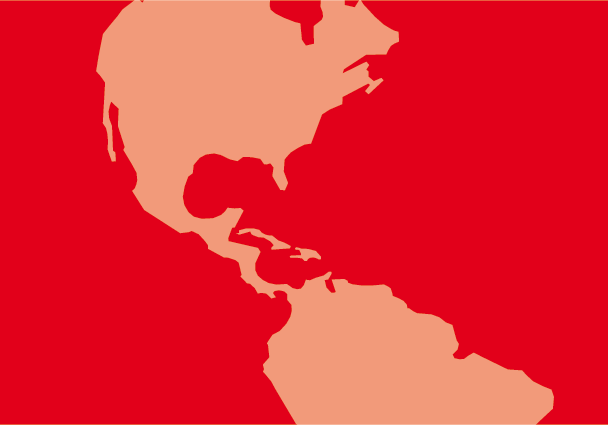
Dec 6, 2023 | Noticias
Perú violó sus obligaciones bajo el derecho internacional al liberar al expresidente Alberto Fujimori, en flagrante desafío a las órdenes emitidas por la Corte Interamericana de Derechos Humanos (Corte IDH), dijo hoy la Comisión Internacional de Juristas (CIJ).
La CIJ ha hecho un llamamiento para que Perú cumpla con sus obligaciones legales y para que los órganos de la Organización de Estados Americanos (OEA) adopten medidas efectivas para garantizar dicho cumplimiento.
La excarcelación anticipada de Fujimori, por supuestos motivos humanitarios, a pesar de no haber reconocido ninguna responsabilidad ni arrepentimiento por las atrocidades por las que fue condenado, es una afrenta a las numerosas víctimas y sus familias que sufrieron graves abusos bajo su gobierno.
Aunque la acción no equivale formalmente a una revocación de la declaración de culpabilidad o a un perdón de los delitos, Perú no siguió procedimientos que tuvieran en cuenta las preocupaciones de las víctimas o que justificaran la necesidad humanitaria de su liberación.
En 2009, Fujimori fue condenado a 25 años de prisión por su participación en la comisión de ejecuciones extrajudiciales, desapariciones forzadas y otros actos que, en su conjunto, constituían crímenes de lesa humanidad. El 6 de diciembre de 2023, fue puesto en libertad por orden del Tribunal Constitucional peruano tras un indulto humanitario emitido el 24 de diciembre de 2017 por el entonces presidente Pedro Pablo Kuczynski Godard.
El Tribunal y el Presidente no tuvieron en cuenta los derechos de las víctimas a la verdad, la justicia y la reparación”, dijo Carolina Villadiego, Líder del equipo de América Latina de la CIJ.
El flagrante desconocimiento por parte del Tribunal Constitucional del requerimiento explícito de la Corte Interamericana de hacer esta evaluación es una afrenta a las víctimas de los crímenes de Fujimori”, agregó Villadiego.
Aunque los derechos humanos de los condenados exigen que las autoridades judiciales tengan en cuenta el impacto de la detención en su salud, cualquier consideración sobre la salud debe estar fundamentada, y las víctimas deben ser escuchadas y sus derechos tenidos en cuenta a la hora de determinar si debe concederse la libertad por motivos humanitarios.
Tras la emisión del indulto en 2017, el 30 de mayo de 2018, la Corte IDH adoptó una resolución solicitando a las autoridades peruanas evaluar la posibilidad de una revisión judicial del indulto humanitario. Según la Corte IDH, dicha evaluación debería tener en cuenta, entre otras consideraciones, el derecho de las víctimas de Fujimori a acceder a la justicia; la proporcionalidad de la pena impuesta y su ejecución; los derechos de Fujimori, en particular su derecho a la vida, a la integridad personal y a la salud.
La Corte Interamericana identificó inconsistencias en la evaluación de la salud de Fujimori, lo que debería haber impulsado a los tribunales nacionales a investigar a fondo las circunstancias que condujeron al indulto y garantizar que se tuvieran en cuenta los derechos de todas las partes implicadas”, afirmó Villadiego. “Los derechos de las víctimas parecen haber sido dejados de lado tanto por el presidente Kuczynski como por el Tribunal Constitucional, dando al traste con años de avances en la lucha contra la impunidad en el país”, añadió Villadiego.
La Corte IDH ejerce supervisión sobre las decisiones relacionadas con el caso Fujimori, casos Barrios Altos y La Cantuta, en las que determinó que Perú había violado sus obligaciones en virtud de la Convención Americana sobre Derechos Humanos (CADH) al no exigir responsabilidades a los autores de graves violaciones de los derechos humanos cometidas en Perú. Las autoridades peruanas están obligadas a cumplir las decisiones de la Corte IDH en este caso, en consonancia con los principios fundamentales del Estado de derecho.
La CIJ resalta de manera inequívoca que las autoridades peruanas deben cumplir con las órdenes de la Corte IDH. El Tribunal Constitucional peruano no está facultado para desconocer la potestad de la Corte IDH de emitir órdenes en el marco de su función jurisdiccional de supervisión de la ejecución de sus decisiones y dejar sin efecto dichas órdenes.
La CIJ pide a las autoridades peruanas que cumplan las órdenes de la Corte IDH y revisen el indulto humanitario ejecutivo de Fujimori. Esto requiere una evaluación actualizada, exhaustiva e imparcial de la salud de Fujimori y la consideración de los derechos de las víctimas de Fujimori.
La CIJ también hace un llamamiento a la comunidad internacional, en particular a los miembros de la OEA, para que exijan a Perú que acate las órdenes de la Corte IDH y cumpla con sus obligaciones internacionales en materia de derechos humanos en relación con las víctimas de graves violaciones de derechos humanos y crímenes de derecho internacional.
Antecedentes
En 2009, la Corte Suprema de Perú condenó a Alberto Fujimori por el asesinato de 25 personas, las lesiones graves a cuatro personas y el secuestro de dos personas y que consideró que dichos crímenes constituían crímenes de lesa humanidad. Como principio general, las normas y estándares internacionales prohíben la concesión de amnistías e indultos a los condenados por violaciones graves de derechos humanos que constituyan crímenes de derecho internacional. El derecho internacional también exige la protección del derecho a la salud de todas las personas, incluidos los presos, lo que, en algunos casos, podría permitir el encarcelamiento institucional.
Las decisiones del Tribunal Constitucional del Perú
El 4 de diciembre de 2023, el Tribunal Constitucional dictó una sentencia en la que ordenaba al Instituto Nacional Penitenciario la inmediata puesta en libertad del expresidente Fujimori, que cumple una condena de 25 años de prisión, la cual concluye en febrero de 2032. El fallo fue la última decisión judicial iniciada por el indulto humanitario, por problemas de salud, otorgado a Fujimori el 24 de diciembre de 2017 por el entonces presidente Pedro Pablo Kuczynski Godard. Previamente, el 17 de marzo de 2022, el Tribunal Constitucional había resuelto que el indulto humanitario a Fujimori debía ejecutarse.
En la sentencia de 2023, el Tribunal también declaró que la Corte IDH no tenía competencia para pronunciarse sobre la no ejecución de una sentencia nacional como parte de la función judicial de la Corte IDH de supervisar la ejecución de sus decisiones. Esta afirmación fue en reacción de la resolución adoptada el 7 de abril de 2022, en la que la Corte IDH había ordenado al Estado peruano no ejecutar la sentencia del Tribunal Constitucional de 2022.
La posición del Tribunal es contraria a las facultades de la Corte IDH establecidas en los artículos 33, 62.1, 62.3 y 65 de la Convención Americana sobre Derechos Humanos (CADH) y en el artículo 69 del Reglamento de la Corte IDH. Además, la posición del Tribunal podría implicar que algunas actuaciones de las autoridades judiciales pueden estar fuera del ámbito del control de convencionalidad, y por lo tanto, fuera de la obligación establecida en la CADH
Las decisiones de la Corte Interamericana de Derechos Humanos
Antes de la sentencia condenatoria de 2009 contra Fujimori, por los mismos hechos, en 2001 y 2006, en los casos de Barrios Altos y La Cantuta, la Corte IDH había determinado que el Estado peruano había incumplido sus obligaciones en virtud de la CADH. La Corte IDH determinó que Perú había violado el derecho a la personalidad jurídica (artículo 3), el derecho a la vida (artículo 4), el derecho a la integridad personal (artículo 5), el derecho a la libertad personal (artículo 7) y el derecho a las garantías judiciales y a la protección judicial (artículos 8 y 25). En ambos casos, entre otras medidas de reparación, la Corte IDH ordenó a Perú que identificara, investigara, procesara y sancionara a los responsables de las violaciones de derechos humanos.
Como parte de la función judicial de supervisar la implementación de sus decisiones, la Corte IDH ha emitido varias resoluciones ordenando medidas para la plena implementación de las órdenes en los casos de Barrios Altos y La Cantuta. Tras la emisión del indulto humanitario en diciembre de 2017, la Corte IDH emitió una resolución el 30 de mayo de 2018 solicitando a las autoridades peruanas evaluar la posibilidad de una revisión judicial del indulto humanitario.
Para la Corte IDH, esta revisión judicial debería considerar: (i) el derecho de las víctimas de Fujimori a acceder a la justicia; (ii) la proporcionalidad de la pena impuesta y de su ejecución; (iii) los derechos de Fujimori, en particular su derecho a la vida, a la integridad personal y a la salud; y (iv) el hecho de que las penas de prisión no pueden convertirse en penas de muerte. Además, la Corte IDH consideró que existían serias dudas sobre si se habían cumplido los requisitos legales establecidos en la legislación peruana para la concesión del indulto humanitario. La CIDH destacó las inconsistencias en la evaluación de la salud de Fujimori y las alegaciones de que el indulto se concedió para dar al entonces presidente Kuczynski los votos en el Congreso para impedir la vacancia presidencial.
Adicionalmente, la Corte IDH también mencionó que, en casos de graves violaciones a los derechos humanos y crímenes de derecho internacional, los indultos por razones de salud, como en el caso Fujimori, es necesario tener en cuenta la salud del condenado, pero también se debe considerar:
(…) que se haya cumplido una parte considerable de la pena privativa de libertad y se haya pagado la reparación civil impuesta en la condena; la conducta del condenado respecto al esclarecimiento de la verdad; el reconocimiento de la gravedad de los delitos perpetrados y su rehabilitación; y los efectos que su liberación anticipada tendría a nivel social y sobre las víctimas y sus familiares”.
La revisión judicial llevada a cabo por el Tribunal Constitucional peruano no tuvo en cuenta ninguno de los requisitos establecidos por la Corte IDH en su resolución de 30 de mayo de 2018. En consecuencia, el 7 de abril de 2022 y el 5 de diciembre de 2023, la Corte IDH ordenó al Estado peruano no implementar la decisión del Tribunal Constitucional en relación con el indulto humanitario a Fujimori. Ello, a fin de garantizar el derecho de acceso a la justicia de las víctimas de los casos Barrios Altos y La Cantuta.
Contactos:
Carolina Villadiego Burbano, Líder del equipo de América Latina de la CIJ, correo electrónico: carolina.villadiego@icj.org
Rocío Quintero Martínez, Asesora Legal de la CIJ para el programa de América Latina, correo electrónico: rocio.quintero@icj.org










